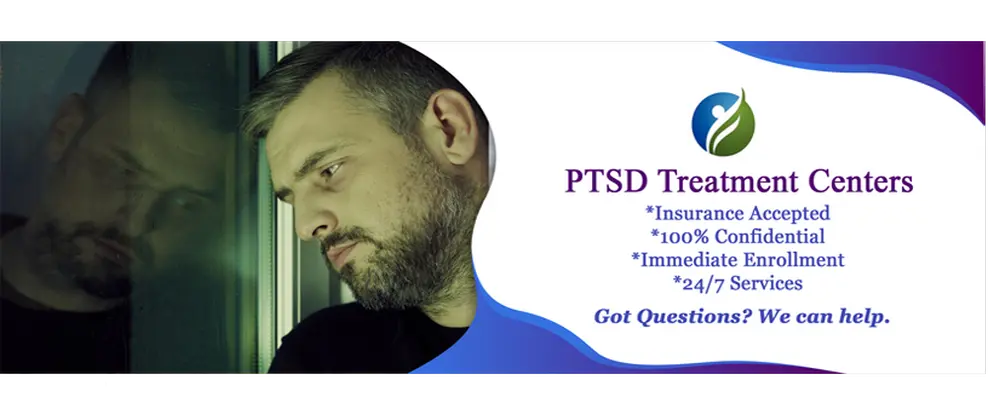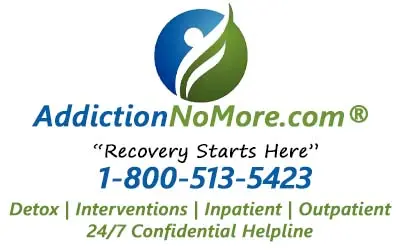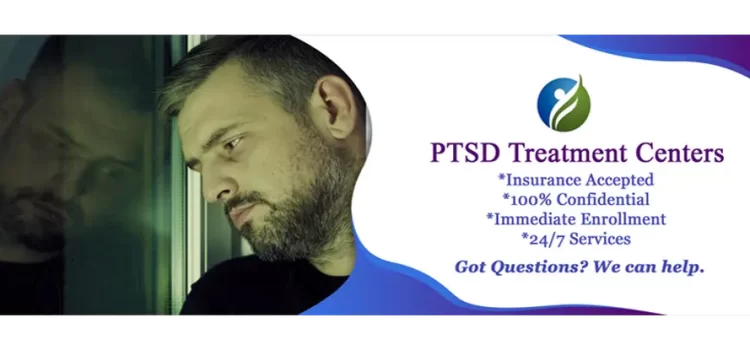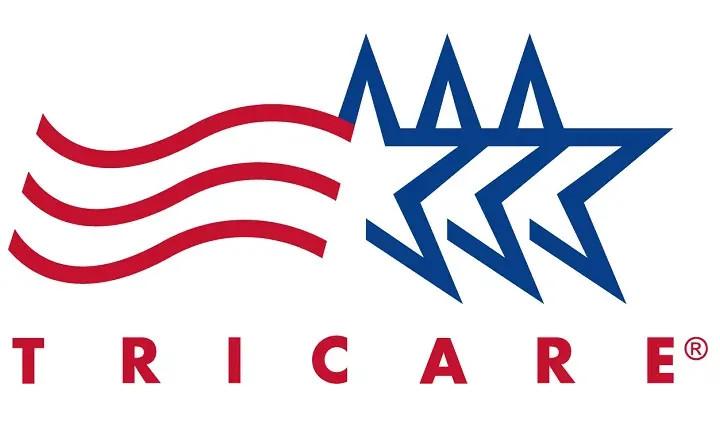PTSD Treatment Centers in Washington DC
PTSD treatment centers in Washington DC offer therapy for trauma and PTSD along with addiction treatment and detox options. Post-traumatic stress disorder (PTSD) is a mental health condition that occurs after a traumatic event or ongoing mental/physical abuse. PTSD can occur in anyone who has been subject to any of the following: physical or sexual assault, disaster, abuse (mental or physical), accident, or other serious events. Cooccurring substance abuse disorders with PTSD are very common in the United States.According to the national statistics compiled by the National Center for PTSD, 7-8 people out of every 100 people have experienced PTSD at some point in their lives. Those who have been diagnosed with TBI (traumatic brain injury) or PTSD (Post-traumatic stress disorder) have a higher rate of dependency on drugs or alcohol. The rate of addiction among those who have been diagnosed with PTSD is 3 times higher than that of people who have not experienced trauma in their lives. PTSD affects around 5.2 million people nationally, which is about 3.6 percent of the population. The latest prediction has the number of predicted cases of post-traumatic stress at 7.8 million people, which is predicted to rise up to almost 8% percent of the population. PTSD can last for a couple of weeks (if treated) or for the rest of someone’s life if left untreated. Treatment and recovery are possible with the right approach and therapy. Going to a PTSD Treatment Center in DC is always the best solution for handling complex PTSD and addiction problems simultaneously.
Please contact us by phone for immediate assistance. This is a necessary step in beginning the recovery process for yourself or a loved one. Our addiction treatment specialists and staff have over 25 years of experience in helping people find effective and affordable treatment for all addictions. What you tell us is completely confidential. We are HIPAA compliant. We are here to answer your questions and to get you (or a loved one) into treatment today. For immediate intake, call us now.
1-800-513-5423
What you will learn:
What is PTSD Trauma?
What type of Rehab Program is Best for Trauma, PTSD, and Addiction?
Types of PTSD Therapy
Trauma and PTSD Treatment Centers for Women
PTSD in the Military
Tricare Accepted Rehab Centers for PTSD
Treatment Programs for First Responders
Addiction and PTSD
How We Can Help
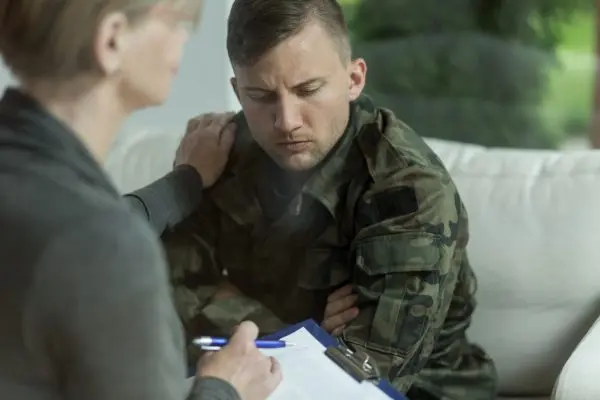
What is PTSD Trauma?
Trauma usually manifests within the first few days of a traumatic event. After a person has experienced a traumatic event in their life, it is commonplace for PTSD to cause a person to feel a sense of helplessness, depression, suicidal thoughts, aggression, and flashbacks. People who suffer from PTSD can have nightmares and flashbacks that can be debilitating, which can lead almost 40% to use drugs or alcohol to mask the symptoms, leading to addiction and dependency. People can experience strong feelings of guilt, shame, grief, sadness, fear, and anger. With most people, once processed, these feelings begin to subside, but some are never able to process those feelings and begin a healing process. For those people, a traumatic event can lead to PTSD. Post-traumatic stress disorder causes many different mental health problems to manifest.Some events that can cause trauma reactions include:
*Sexual assault
*Domestic violence and abuse
*Military combat or being in a war zone
*Natural disasters
*Having a life-threatening illness
Not everyone who goes through a traumatic event will develop PTSD. Most are able to work through complex emotions on their own or by talking about their experiences. For the percentage that cannot process the events, PTSD does manifest and can be debilitating or lead to chemical dependency.
People who are experiencing complex PTSD symptoms will excerpt some if not all of these symptoms:
*Inability to function in day-to-day life
*Panic and overreaction to events
*Insomnia
*Depression and or anxiety
*Withdrawal from others or responsibilities
*Emotional outbursts or unwanted anger
*Inability to concentrate
*Flashbacks of a traumatic event
*Nightmares
*Avoiding and staying away from people, places, or things that remind you of the event
*Feeling tense, on edge, or easily startled
*Having trouble concentrating, remembering key details of the event, or feeling negative emotions like fear, anger, guilt, or shame
*Headaches, stomach aches, increased heart rate, sweating, trembling, muscle tension, nausea, pain in joints or back, trouble breathing, or dizziness
*Find it difficult to express emotions
*Mentally disconnecting from surroundings or situations (dissociative episodes)
*Social isolation and distrust of others
*Obsession or fixation on whatever or whoever is responsible for this trauma.
If your symptoms last longer than four weeks, cause you great distress or interfere with your work or home life, you might have PTSD. A medical professional can diagnose and treat PTSD with psychotherapy or medications. You can take a screening online or at a VA medical center to help you and your provider understand if you might benefit from treatment.
1-800-513-5423

What type of Rehab Program is Best for Trauma, PTSD, and Addiction?
PTSD in itself does not cause addiction, but for those who choose to mask the symptoms with drugs or alcohol, there is a good chance that addiction will soon follow. Once you start self-medicating, it becomes easier to use a substance or alcohol to take the pain away. Almost 50% of the people who enter into treatment for addiction have a form of PTSD from a past experience or traumatic event. Addiction and PTSD have been synonymous with each other longer than reported and probably since the inception of substances that alter the mind. Deciding if you should find treatment for your addiction is a hard enough decision to make, but that is only the first of many choices you will need to make. Deciding whether you could benefit from a PTSD treatment center can determine where you should start looking.Inpatient treatment programs for PTSD and co-occurring substance abuse usually consist of 24-hour care at a live-in drug rehab center. The length of stay at an inpatient treatment center in the District of Columbia is dependent on the addiction, amount of use, frequency of use, and ability to take time off work or responsibilities. Long-term, 90-day drug rehab centers offer a longer stay for those who need more time to handle their addiction. Residential inpatient long-term drug rehabs help those who have a heavy drug or alcohol addiction and need intensive treatment for their addiction. Treatment at a short-term program can last anywhere from a 2-week intensive inpatient therapy to 30 or more days, depending on the program or severity of the addiction. Short-term, 28-day inpatient treatment programs work almost the same as long-term drug rehab centers. The only difference between a long-term and a short-term 30-day treatment program is the amount of time and therapy you would receive while enrolled in the program. Finding out what is needed to handle the patient’s addiction issues can give you a good idea of how long the patient should be treated in a short-term inpatient drug rehab.
Outpatient treatment programs for PTSD can be found in almost all 50 states. Outpatient drug rehabs are usually centrally located. Outpatient rehab centers offer treatment for substance abusers who cannot take time away from their busy schedules for treatment. Often, outpatient rehab is used as the first defense against a developing addiction. Outpatient treatment is used to define treatment options that can vary from going to 12-step meetings to partial hospitalization treatment programs.
Inpatient substance abuse treatment centers that also treat PTSD symptoms will need to be able to change, prescribe, and adjust existing prescriptions if necessary. For this reason, we normally recommend a Dual Diagnosis Treatment Program for PTSD treatment in DC. Dual diagnosis is the condition of having a mental health issue and substance use disorder at the same time. Many of the dual diagnosis treatment centers treat the individual by using an integrated approach, working with both psychological and alcohol or drug dependency. Dual-diagnosis treatment programs are a relatively new approach to treating addiction and have gained acceptance and significant results in treating co-occurring substance disorders.
Free treatment programs consist mainly of a straightforward drug and alcohol treatment program. For free treatment centers in Washington DC, there are many different options available to the general public that can also help with some, if not all, of the PTSD symptoms and concerns you have.
Finding the best drug rehabilitation center in Washington DC with experience in treating PTSD can be difficult, but with our help, we can make the process much easier and less stressful. For more information and help locating a treatment center that can also handle PTSD issues, please call us now.
1-800-513-5423
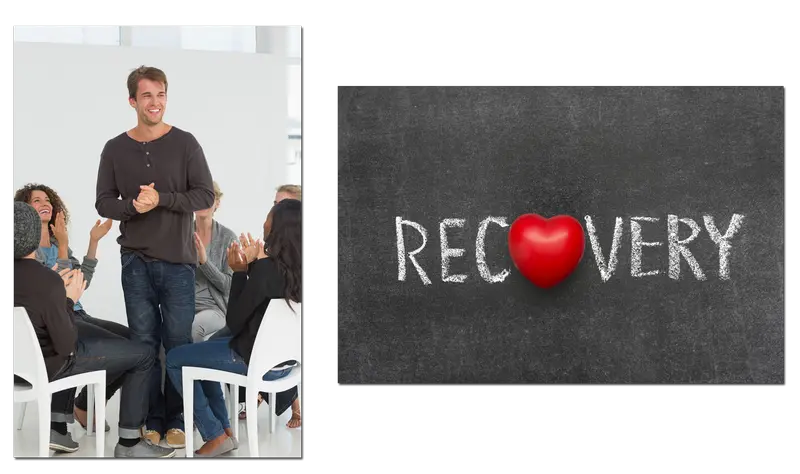
Types of PTSD Therapy
There have been many breakthroughs recently in the treatment of PTSD, including new understandings of why the occurrence even happens to begin with. Recent studies and therapy notes, including unorthodox practices, have led to many different therapy models specifically designed for the treatment of post-traumatic stress disorder.EMDR: Eye Movement Desensitization and Reprocessing have been shown to help some who suffer and have coping problems. Using eye movement techniques, the client is asked to relive their experiences while being led through eye movement techniques. This technique has shown promise and works well with other traditional therapy models.
Pharmacotherapy: Using medications to handle complex mental issues. This should be used only as a part-time aid while undergoing therapy to overcome the disorder. Unfortunately, this can become the only treatment option available right now at the VA Medical Center in Washington DC.
Cognitive-Behavioral Therapy: Through CBT, while working with a therapist, the individual will identify distortions and feelings associated with the trauma or traumatic event. Working through the point at which the trauma was first identified will help the individual start to process the trauma and navigate the emotional rollercoaster with the guidance of a licensed clinician.
Cognitive Processing Therapy: CPT has been used to treat PTSD and trauma issues since the early ’80s. CPT is a therapy model that is used by clinicians and counselors to help people recover from post-traumatic stress disorder. Designed around the Cognitive Behavioral Therapy model, this form of treatment has been the most effective in treating PTSD.
Hypnotherapy: Hypnotherapy and Hypnosis for PTSD offer treatment that is evidence-based to effectively treat the symptoms as well as the underlying issues that lead to PTSD. Those who are experiencing severe PTSD symptoms will benefit the most from hypnotherapy. People who have had childhood stresses and horrifying experiences or those who have had major trauma in their lives benefit greatly from hypnotherapy.
Group Therapy: Group therapy is an essential part of any treatment model. Inpatient or outpatient PTSD treatment programs utilize group therapy to help give the individual a feeling of community and support. When you enter into a group therapy setting, the feelings that you are going through alone can be lessened once you realize that this is not something that just happened only to you. Having a group that is going through the same type of treatment and struggles can give a person support and understanding, helping them cope with the underlying issue that has led them to therapy in the first place.
Online Therapy: Online therapy and online counseling have been used for many years in the addiction rehabilitation world and have become one of the best real-time help platforms for those struggling with flashbacks or a bad episode. The PTSD Alliance is one of the best resources for immediate online help.
Military PTSD Therapy: Military PTSD Treatment Services mainly include a short stay at the VA hospital or outpatient therapy. The VA is dedicated to helping those active and inactive service members who are suffering from Post Traumatic Stress Disorder or traumatic brain injury (TBI).

Trauma and PTSD Treatment Centers for Women
PTSD in women can occur when there is physical, sexual, or mental abuse present. The rates of suicide attempts among women with PTSD surpass men, but the death rate is actually lower than their male counterparts. Treatment programs for women will almost always cover PTSD and abuse issues that may have led to addiction. Treatment for PTSD in women should always incorporate private, one-on-one therapy and specific female group therapy sessions. Therapy for women with PTSD does not necessarily need to be done at an all-women treatment center for PTSD treatment and substance abuse, but gender-specific groups are needed to ensure a safe environment for women to share their experiences.Women serving in the military, especially in combat zones, can experience PTSD from MST (Military Sexual Trauma) and combat. It is estimated that about 70% of women in a military combat zone experience one form or another of MST. If left untreated, it can lead to PTSD and substance abuse problems. Women with PTSD have options for all female PTSD trauma centers for this reason.
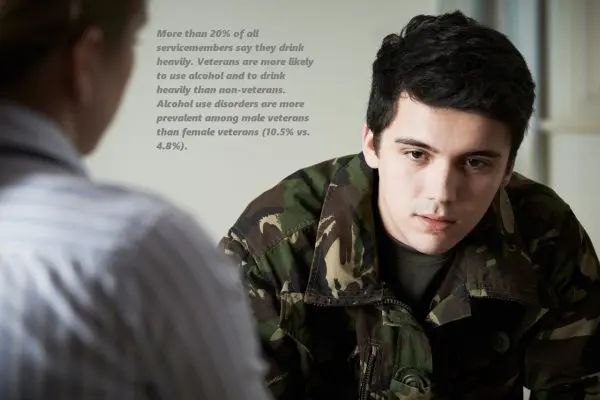
PTSD in the Military
There are many different scenarios that can lead to the development of PTSD in an individual, including any form of trauma one has experienced. The most recognized form of PTSD is when someone returns home from the military after experiencing a traumatic event. PTSD in the military has been documented for decades. The number of people affected by PTSD in military combat can be 4 times that of civilians.Out of every 100 veterans who served in Operation Iraqi Freedom, between 11% to 20% have PTSD during any given year. They figure that 12 out of every 100 veterans who served in the Gulf War have been diagnosed and treated for PTSD and trauma-related issues. For those who served in the Vietnam War, it is believed that over 30% of those who served are suffering from PTSD.
In 2019, the suicide rate of active service members broke a record set in 2012, with 325 service members committing suicide due to PTSD. With 17 inactive military personnel dying each day from suicide, the scope of the problem is not getting any better. With treatment and rehabilitation, the VA is utilizing all its resources to fight this losing battle. It has been left up to private care facilities to step up their programs to include more PTSD treatment options in their treatment programs in Washington, DC.
PTSD has been brought to the forefront of the mental health conversations. This is due in part to the need for more inpatient PTSD and trauma programs in the District of Columbia for active and inactive service members who came home with mental health problems. Working with private PTSD treatment programs, the government has relaxed guidelines to allow private care facilities to treat military personnel in their drug and alcohol rehab centers in DC.
All VA Medical Centers in Washington, DC, offer PTSD treatment, even if there is no specific PTSD program. Contact your local VA Medical Center and ask for the Mental Health Clinic. Many Vet Centers and VA community-based Outpatient Clinics also offer PTSD treatment. Inpatient PTSD treatment programs are a bit harder to locate, but with the new laws allowing for coverage to include private treatment centers, the options are out there if you know where to look.
Tricare Accepted Rehab Centers for PTSD
Many treatment centers can accept Tricare Military Insurance for expenses. Inpatient rehabs can work with the VA to help with the PTSD aspects of treatment to maintain a level of federal compliance guidelines. Treatment for service members, active and inactive, must be coordinated through the PTSD drug or alcohol rehabilitation center and the VA to ensure Tricare coverage.When trying to locate a Tricare therapy program for PTSD, there are a few considerations to take into account before making a decision. Tricare treatment options for PTSD and substance abuse include inpatient and outpatient therapy.
If you are looking for PTSD help in DC, locating a professional to help you can be one of the best decisions you can make for your mental health. Professionals that provide PTSD treatment and therapy include Trauma Treatment Centers, PTSD psychiatrists, PTSD counselors, PTSD psychotherapists, and PTSD and trauma psychologists. These professionals can help with PTSD diagnosis. Some specialized treatment methods can be outsourced to another PTSD doctor if necessary. Addiction specialists can help you navigate the web of paperwork and get you the treatment you deserve for your PTSD symptoms and addiction problems that have ensued thereafter.
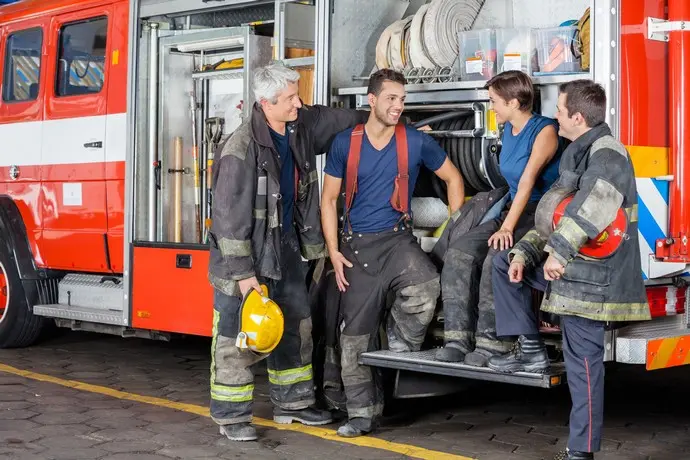
Treatment Programs for First Responders
Treatment for PTSD in first responders is a critical part of the mental well-being of firefighters, police officers, EMTs, critical care physicians, and nurses. Ongoing mental health problems, including depression, anxiety, and suicidal thoughts, are common. Being constantly exposed to trauma and traumatic events, first responders suffer most from the symptoms of PTSD. Working long hours with little sleep and being constantly exposed to life-threatening situations and traumatic events has led to rising addiction rates and substance abuse among our first responders.Addiction and PTSD
PTSD and substance abuse almost always go hand in hand. When you feel that you cannot handle the complex emotions flooding in, a person will seek a solution to the problem, and that usually entails self-medication of one form or another. Dependency on medications and using more of your medications to have the same effect they had previously can lead to addiction.Alcohol dependency and PTSD symptoms are a tragic pairing, especially among veterans. PTSD, TBI, and alcohol abuse have led to increasing suicide rates among veterans and civilians. PTSD can keep manifesting for years and even decades if left undiagnosed. Alcohol addiction causes PTSD symptoms to get worse, making it harder to cope with stressful situations and traumatic memories. Alcohol treatment programs that specialize in the treatment of PTSD have been working with the VA and mental health professionals in DC to ensure that no one gets left behind.

How We Can Help
We can help you locate addiction treatment with PTSD therapy in your area or anywhere in the country. Give us a call to find AA meetings, group meetings, 12-step programs, inpatient treatment, or outpatient services in your area or anywhere in the USA. It is sometimes beneficial for the client to go to treatment further away from home. Getting away from temptations and friends who may still be using is often better for many people. Clients who go to rehab in another state also have a harder time leaving treatment early as well. Depending on the situation, our counselors may suggest looking for substance abuse programs that are a plane flight away.Below, we have listed the VA medical centers in DC that can deliver a program for PTSD and underlying addiction issues. If you are looking for a solution in the private sector or are looking for outpatient treatment programs for PTSD in the District of Columbia, we can help. Many programs are available that can accept Tricare insurance for the cost of treatment. Most private insurance plans will cover mental health, so if you have private healthcare insurance, we can help you get approved for treatment within 24 hours.
1-800-513-5423
Hampton VA Medical Center
100 Emancipation Drive
Hampton, VA 23667
PTSD Domiciliary (PTSD Dom) Intensive/Inpatient
Celena Thompson, PsyD
PTSD Clinical Team (PCT) Outpatient
Kristie Norwood
Hunter Holmes McGuire VA Medical Center
1201 Broad Rock Boulevard
Richmond, VA 23249
PTSD Clinical Team (PCT) Outpatient
Marilyn Royster
Salem VA Medical Center
1970 Roanoke Boulevard
Salem, VA 24153
PTSD Clinical Team (PCT) Outpatient
Dana Holohan, PhD
Specialized Inpatient PTSD Unit (SIPU) Inpatient
Emily Marston, PhD
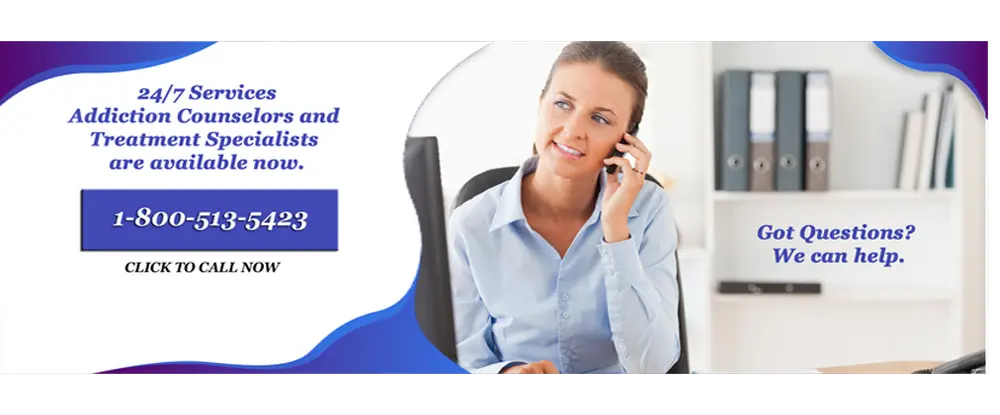
Sources
Disability under Social Security
Better Health PTSD
SAMHSA PTSD
VA.gov
NIH PTSD
MedlinePlus PTSD
Post Traumatic Stress Disorder
ptsd.va.gov
Erik Epp – Content Author
Office on Women’s Health
Women and PTSD
